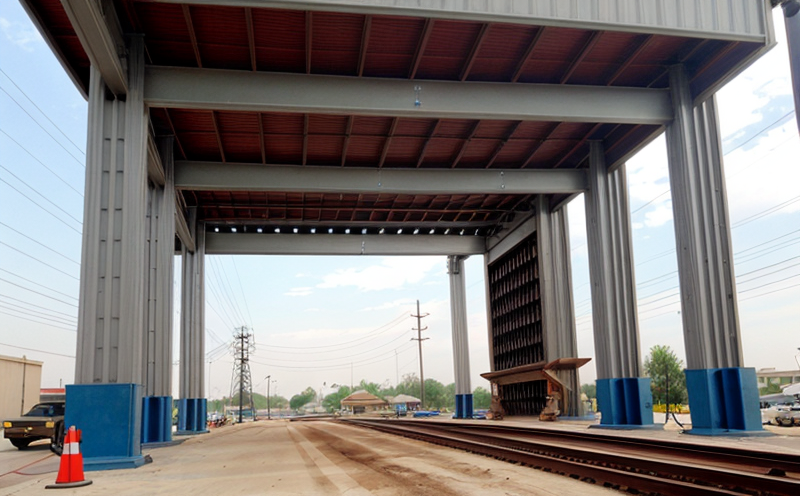SAE ARP 4990 Structural Testing of Aircraft Assemblies
The SAE ARP 4990 standard outlines the procedures for conducting structural testing on aircraft assemblies to ensure they meet stringent safety and performance requirements. This service is critical in aerospace and aviation, where even minor flaws can have catastrophic consequences.
Structural testing involves a series of tests designed to evaluate the integrity and durability of components under simulated operational conditions. The primary goal is to identify potential weaknesses or failures that could compromise safety during flight operations. Compliance with SAE ARP 4990 ensures that aircraft assemblies are robust, reliable, and capable of enduring the stresses encountered in real-world scenarios.
The testing process begins with a thorough examination of the assembly's design specifications and materials used. This step is crucial for understanding the expected performance under various loading conditions. Once this information is gathered, specimens are prepared according to the standard's guidelines. The preparation includes ensuring that the test pieces represent the actual components accurately.
Instrumentation plays a pivotal role in structural testing. High-precision load cells and strain gauges are used to measure stress and deformation. Advanced software solutions analyze data collected during testing, providing insights into how each component behaves under different loads. This information is vital for making informed decisions about the design and manufacturing processes.
SAE ARP 4990 specifies a range of tests that include static load tests, fatigue tests, and impact tests. Each test has specific objectives and parameters designed to mimic real-world conditions as closely as possible. For instance, static load tests assess how components perform under constant loads, while fatigue tests evaluate durability over extended periods.
Post-testing analysis is equally important. It involves examining the results of each test to determine if they meet the acceptance criteria outlined in SAE ARP 4990. Acceptance criteria vary depending on the type of component being tested and its intended use. Compliance with these criteria ensures that the assembly can withstand the stresses it will encounter during normal operation.
Compliance with SAE ARP 4990 is a mandatory requirement for manufacturers aiming to produce safe, reliable aircraft assemblies. This service not only enhances product quality but also supports regulatory compliance, which is essential in an industry where safety is paramount.
Scope and Methodology
| Test Type | Description |
|---|---|
| Static Load Test | Assesses the assembly's performance under constant loads. |
| Fatigue Test | Evaluates durability over extended periods of use. |
| Impact Test | Simulates the effects of sudden, high-impact forces. |
| Test Equipment | Description |
|---|---|
| Load Cells | Measure applied loads accurately. |
| Strain Gauges | Detect small deformations in materials. |
| Advanced Software | Analyze data and provide detailed insights into component behavior. |
The scope of SAE ARP 4990 structural testing is comprehensive, covering all aspects of the assembly's design, materials, and manufacturing process. The methodology involves a series of tests designed to simulate real-world conditions as closely as possible. This ensures that any potential weaknesses or failures are identified early in the development process.
Benefits
- Ensures compliance with industry standards and regulations.
- Enhances product quality by identifying potential flaws early.
- Safeguards against catastrophic failures during flight operations.
- Supports regulatory compliance, which is essential for market entry.
- Provides detailed insights into component behavior under various loads.
The benefits of SAE ARP 4990 structural testing extend beyond mere compliance. It enhances the reputation of manufacturers by demonstrating a commitment to quality and safety. This, in turn, can lead to increased market share and customer trust. By identifying potential weaknesses early, companies can make informed decisions that improve product design and manufacturing processes.
International Acceptance and Recognition
- Safety and reliability are universally recognized as top priorities in the aerospace industry.
- Compliance with SAE ARP 4990 is accepted across various regions, ensuring global market access.
- The standard's rigorous testing procedures ensure that only the highest quality components reach the market.
The international acceptance of SAE ARP 4990 structural testing underscores its importance in maintaining high standards of safety and reliability. Compliance with this standard is recognized globally, ensuring that manufacturers can confidently enter markets around the world. By adhering to these stringent testing procedures, companies demonstrate their commitment to producing safe, reliable components.





